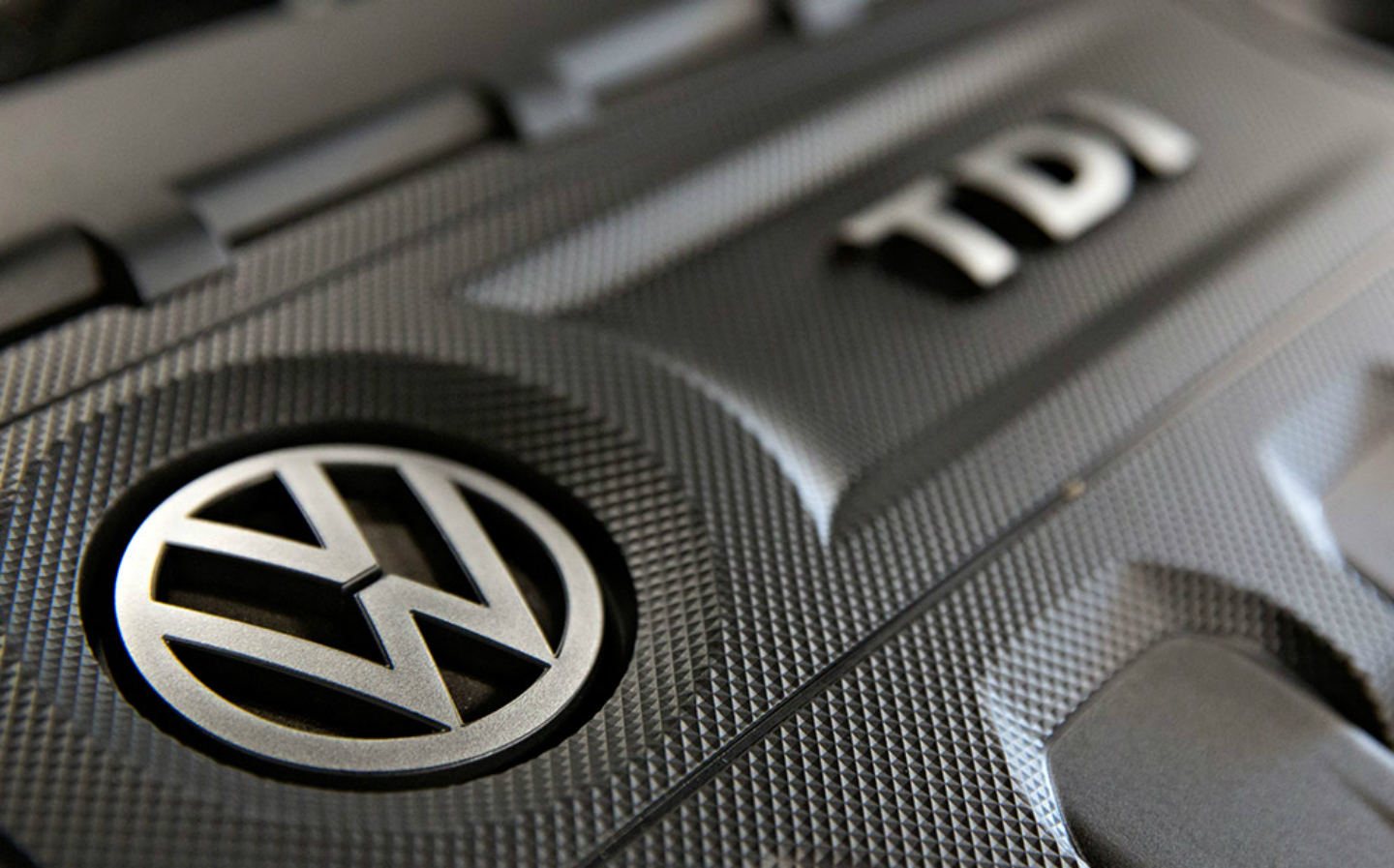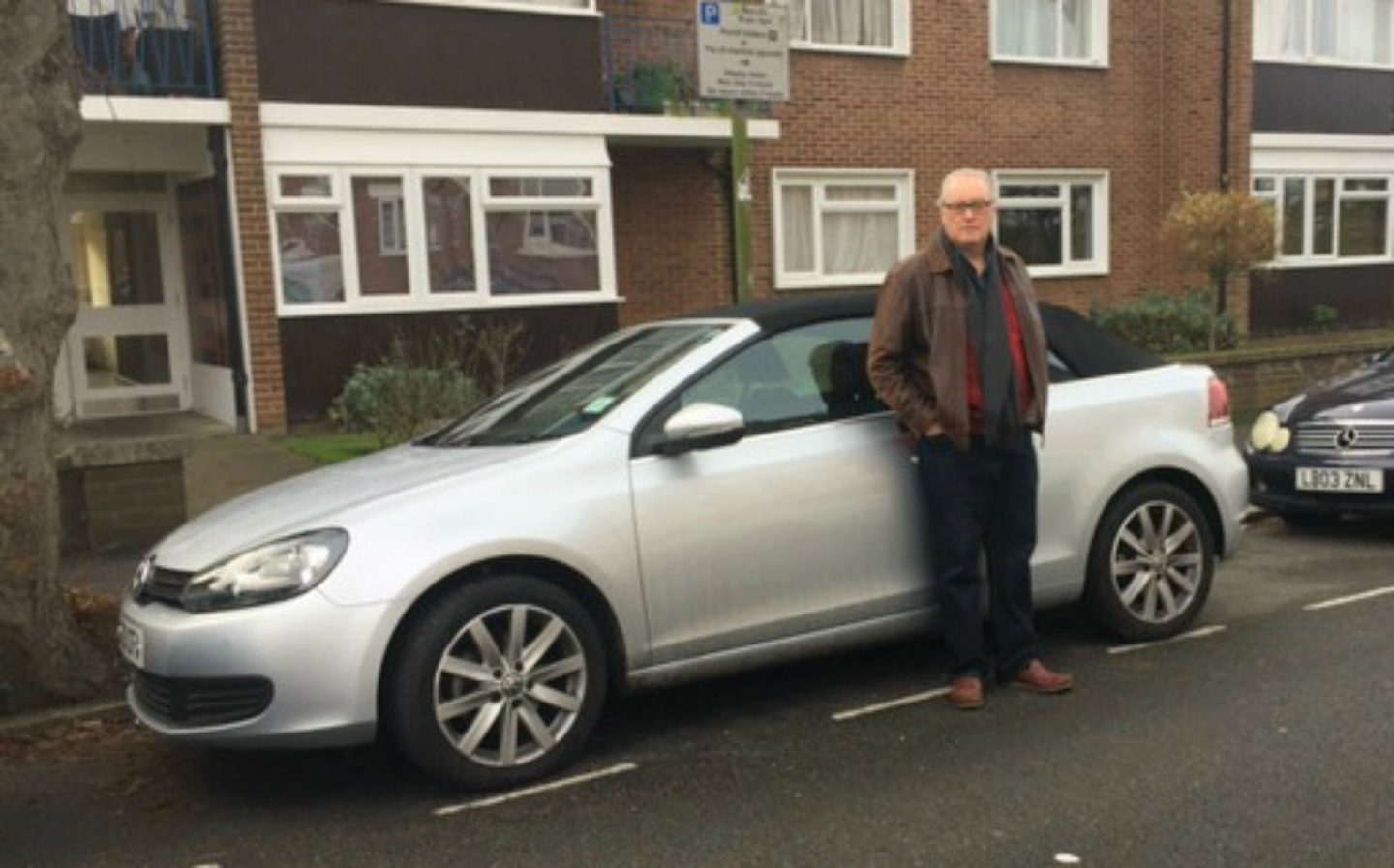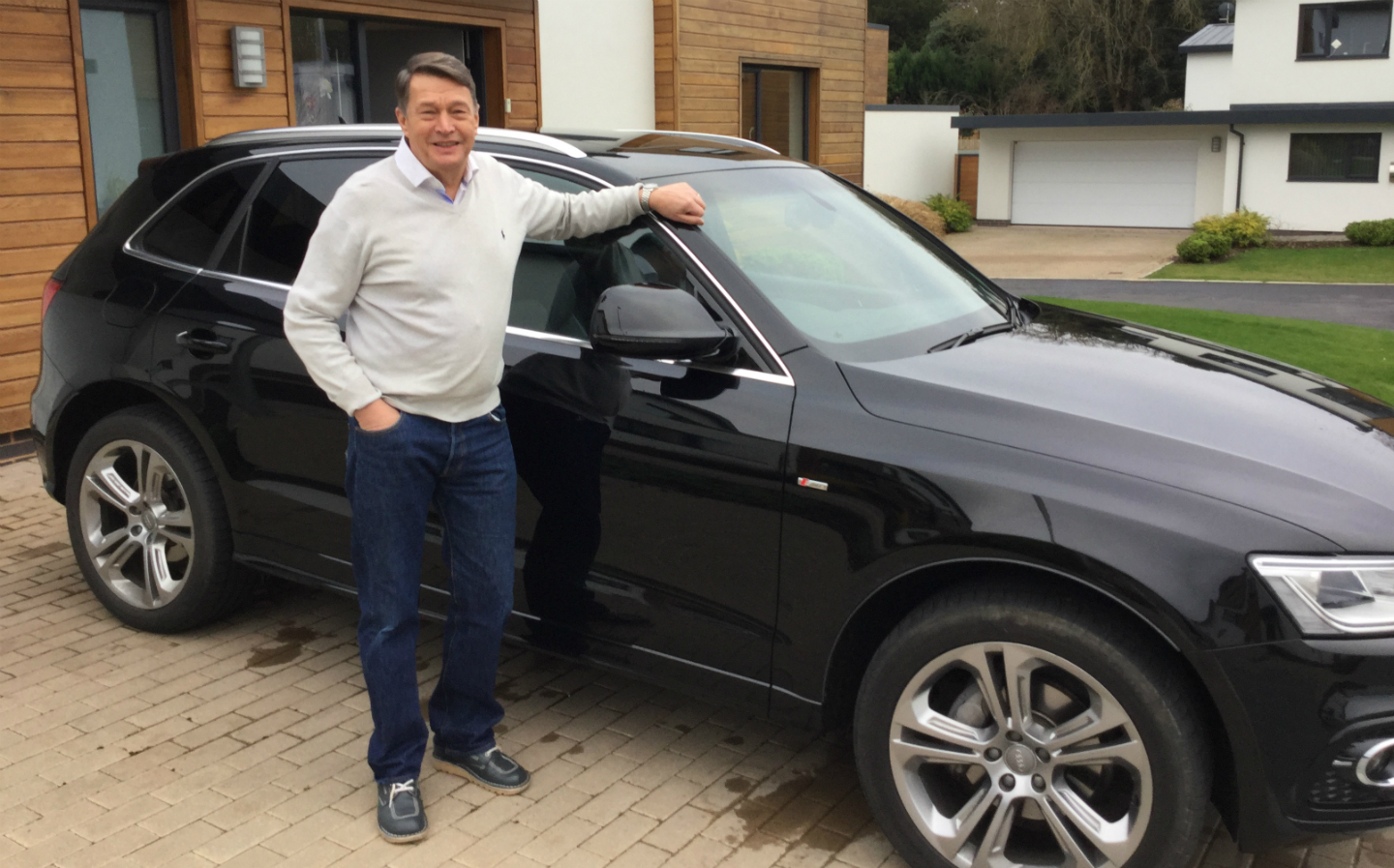The Fixer: British VW, Audi and Skoda owners share dieselgate concerns
"American drivers get compensation, we get nothing"

OWNERS OF VW Group cars in the UK affected by the diesel emissions scandal have contacted Driving with concerns about their cars and the treatment they have received from the German car maker.
While American owners have been promised compensation deals as part of a multi-billion dollar settlement with the US Environmental Protection Agency, to partially resolve alleged Clean Air Act violations, UK drivers must simply take their car back to their respective franchised dealer to have repairs carried out.
In America, VW must also offer to buy back offending cars at a fair cost or end lease deals at no cost, and some owners are also “entitled to additional compensation in connection with the buy-back or lease termination” deals. VW has agreed to a £12bn settlement to cover owners and clean air projects.
Browse NEW or USED cars for sale on driving.co.uk
Yet only 600,000 of the 11m affected Volkswagen, Seat, Audi and Skoda vehicles were sold in North America; double the number were sold in the UK alone, and the Europe-wide recall affects some 8.5m cars.
Around 900,000 British drivers are still awaiting repairs. Many of those wish to sell their cars, or are reaching the end of a period of finance, such as a Personal Contract Purchase (PCP) and believe they will be left out of pocket when trying to sell it without the necessary repairs carried out.
One reason European customers have so far had a less satisfying resolution than their counterparts across the Atlantic is reportedly because European emissions laws are less strict than US laws. Therefore, the VW Group’s “quick-fix solution” could not be applied in America.
In Britain, this fix involves a simple software tweak for the 1.2 and 2-litre EA189 diesel engines, while the 1.6-litre EA189 diesels also require a mechanical change to a flow rectifier, which monitors airflow in the engine and adjusts fuel injection to suit.
In the UK, VW says it has fixed 295,000 cars and the company has pledged to fix all cars affected by autumn 2017. VW Group is adamant that no compensation is required for European owners affected by dieselgate, despite pressure from owners seeking reparations.
Below are case studies of three Driving readers affected by the VW Group emissions scandal. Jump to their stories:
And at the bottom of the page we’ve provided expert advice for owners affected by dieselgate.
If you have experienced problems with your Volkswagen, or any other make and model of car, contact us at carclinic@sunday-times.co.uk with the subject line “Dieselgate”.
The Volkswagen driver: Michael Johnson

Michael Johnson is organised by nature. A professional inventory clerk, he oversees property rentals and the contents of fully furnished flats or houses. So Volkswagen’s poor communication and failure to provide a timeframe for repairs has left him frustrated and anxious.
Although he lives in Surbiton, Surrey, he and his wife drive into London on an almost daily basis, and cover 10,000 miles a year. That’s why, in September, 2013, they bought a new Volkswagen Golf cabriolet with a diesel engine. It would be fuel efficient, meaning it should be affordable to run and not too harmful to the environment.
Their ideal car was the 1.6 TDI Bluemotion model, advertised as having low CO2 emissions; so low, it cost just £30 a year to tax.
Browse NEW or USED cars for sale on driving.co.uk
Now, they find themselves stuck with a diesel car that is powered by an engine fitted with a defeat device, the cunning combination of software that allowed Volkswagen to cheat emissions regulations in America.
As explained above, a technical repair has been developed for the million-plus Volkswagen, Audi, Porsche, Seat and Skoda cars affected by the use of illegal software. Yet the Johnson’s Golf cabriolet has not been fixed, and at the time of writing, VW had not provided them with a date by when the fix may carried out.
What’s more, Volkswagen has not said what will happen if the car is not repaired before the end of the car’s finance period. Drivers who buy a car on a finance plan, such as a Personal Contract Plan (PCP) have the option to hand the vehicle back to the lender, buy it, or sell it and settle their outstanding balance.
Volkswagen appears to be “ducking and diving, and trying to wriggle out of any responsibility”
Johnson is concerned about the impact on the residual value of his car, or whether anybody would even buy it, if it has not been repaired before his PCP ends.
He says it’s unfair that American drivers are getting preferential treatment over British drivers. Volkswagen appears to be “ducking and diving, and trying to wriggle out of any responsibility, to reduce the impact,” says Johnson. “We’re stuck in limbo. I can’t even sell the car.”
The “Catch 22” is giving Johnson sleepless nights. Little wonder, then, that he is currently seeking legal advice over dieselgate.
He adds he’s also worried about the wider implications for diesel cars, now, which may face a charge to enter London. “I can see what the Mayor of London is heading towards and we may have to pay an additional charge, above the Congestion Charge, to commute to work every day.”
The Audi driver: Douglas Pestell

After a career spent in the cut and thrust of the restaurant business, chef Douglas Pestell decided that the countless long days of hard work deserved a reward. His treat to himself was a new Audi Q5 2.0 TDI S line quattro, bought using part of his pension savings.
The stylish, four-wheel drive SUV wasn’t only bought to make life that little bit more comfortable, when driving around 10,000 miles a year. It was also chosen for its low emissions, good fuel consumption and safe design.
Pestell often ferries his two grandchildren about, travelling from his home in Exeter to visit family in Oxford. The 66-year old wanted a strong, safe car that was environmentally sound and had four-wheel drive to tackle the muddy tracks of his son-in law’s farm.
Browse NEW or USED cars for sale on driving.co.uk
Not long after buying the Audi, in May, 2015, the dream car lost its feelgood qualities. Dieselgate made the headlines, and Pestell soon learned that his Q5 diesel was implicated in the emissions cheating scandal.
He says the scandal is “disgusting” and the saga appears to be a cover-up. “I am sure that Audi would have known what’s coming out of the exhaust. They must test it.”
Audi hasn’t given Pestell a date for his car to be repaired, an unacceptable delay in his view. “They’ve had a year and a half to sort this out, and still nothing’s been done. Meanwhile, my car continues to pump out harmful emissions.”
Now he doesn’t know what to do. Should he sell his diesel-powered Q5? Would anyone buy it? How economical would a petrol model be, by comparison, and how much more expensive would it be to run?
“I want a fair deal. I want Audi to guarantee that I won’t end up losing money on my car, when I choose to change it”
The unanswered questions play on his mind on a daily basis. Pestell jokes that because he’s retired, he’s got nothing else to worry about. But it’s no laughing matter; he’s invested part of his life savings into the car.
What does he want to happen, ultimately? “I want a fair deal. I want Audi to guarantee that I won’t end up losing money on my car, when I choose to change it.” Why should American drivers be given compensation and British drivers get nothing, he asks.
Unsurprisingly, he won’t be buying another diesel car. Diesel is a dirty word: “They’re talking about banning diesel vehicles from city centres,” he points out, and ends our interview asking for our opinion about plug-in hybrid cars.
The Skoda driver: Catherine Young
Catherine Young believes she has been hoodwinked by Skoda and its parent company, Volkswagen. The geography teacher from Perth, Scotland, once set her pupils a project, to survey the cars of school staff and see which had the lowest emissions and, therefore, paid the least road tax.
To her delight, Young’s 2012 Skoda Fabia 1.6 TDI SE proved the cleanest car in the staff car park. Not long after, however, the dieselgate scandal broke and she says it made her feel she appeared to be a fraud.
In Young’s view, Volkswagen and Skoda let her down by selling her a car that was not as advertised. “I bought the car in good faith, but it had a serious engine emissions problem, which is in contravention of the Sale of Goods Act 1979.”
Browse NEW or USED cars for sale on driving.co.uk
Typically, Young would change her car every three years, so that it did not need to go through the annual MOT test, for vehicles over three-years old. When she contacted a Skoda dealer, to discuss buying another Fabia, she was quoted a poor price for exchanging her existing model. But that wasn’t the only thing that got her blood boiling.
“My car was described as ’emissions defective’ and they wanted to sell me a new Fabia. Very reluctantly, and only under persistent questions, the dealer revealed that the new model had the same emissions defect.”
Communication from VW — a series of four letters, over six-monthly periods, which she refers to as meaningless platitudes — left her offended
She hasn’t changed her car, and believes VW’s actions “have wasted 20 years of initiative and effort where they raised Skoda from the level of a bad joke which comedians had a field day with, to a brand which was taken seriously.”
The communication from VW — a series of four letters, over six-monthly periods, which she refers to as meaningless platitudes — left her offended. The most recent letter used a greatly reduced font size, so it could be fitted onto one piece of paper, presumably to save money. “They were gracious enough to thank me for my continued patience at their inaction to meet the engine emissions standards.”
Ultimately, she believes the German company puts profit before “considerations of honour and responsibility which it owes to unwitting customers who were unlucky enough to buy its dieselgate products.”
What can be done about dieselgate in the UK?
 Advice from our expert, Tim Shallcross
Advice from our expert, Tim Shallcross
If phone charges or water rates are too high, there will be a regulator on hand to examine the industry, limit prices, review quality and levy whopping fines if it is found wanting, but if the second most expensive item in most household budgets turns out to be a dud, you’re on your own; there’s no government body standing in your corner, protecting your interests.
The Americans have the National Highways and Transportation Safety Administration (NHTSA), a government-funded body with real teeth that exists to protect the interests of the motoring public. It can order recalls or, harsher still, can order a public enquiry which almost always results in hefty fines and reputation damage.
“The government should be putting pressure on VW Group to speed up the recall process and give owners guarantees over any possible loss in market value”
In the UK we have the Driver and Vehicle Services Agency (DVSA). This vague title describes the government body which looks after the MOT and driving tests. In addition, as a largely unfunded sideline, it supervises the “Code of Practice on Vehicle Safety Defects”, a voluntary agreement with the motor manufacturers about how they do the paperwork if they ever decide to instigate a recall. DVSA can investigate complaints raised by the public, but only on safety issues. In the few cases DVSA does raise, it usually asks the car maker if it was a manufacturing defect.
Read Vauxhall Zafira fires: is DVSA car safety regulator fit for purpose?
As some comfort to owners of cars affected by the Volkswagen dieselgate recall, there doesn’t seem to be any significant impact on the resale values or demand for used dieselgate models, or those for diesels in general so far.
However, the UK government should be putting pressure on VW Group and the car makers’ trade body, the SMMT, to speed up the recall process and make the car maker give drivers guarantees over any possible loss in market value.
Proposed charges for diesel cars in city centres are likely to affect pre-Euro 6 cars, which will be at least six years old when they are introduced, and the mileage, service history and condition will have more of an effect on values by then.
Tim Shallcross used to train AA patrols to fix cars. Now he advises the Institute of Advanced Motoring.
Have you had problems with your Volkswagen? Or trouble with another make of car? Let us know in the comments below, tweet us @ST_Driving or email us at carclinic@sunday-times.co.uk with subject line “The Fixer”.




